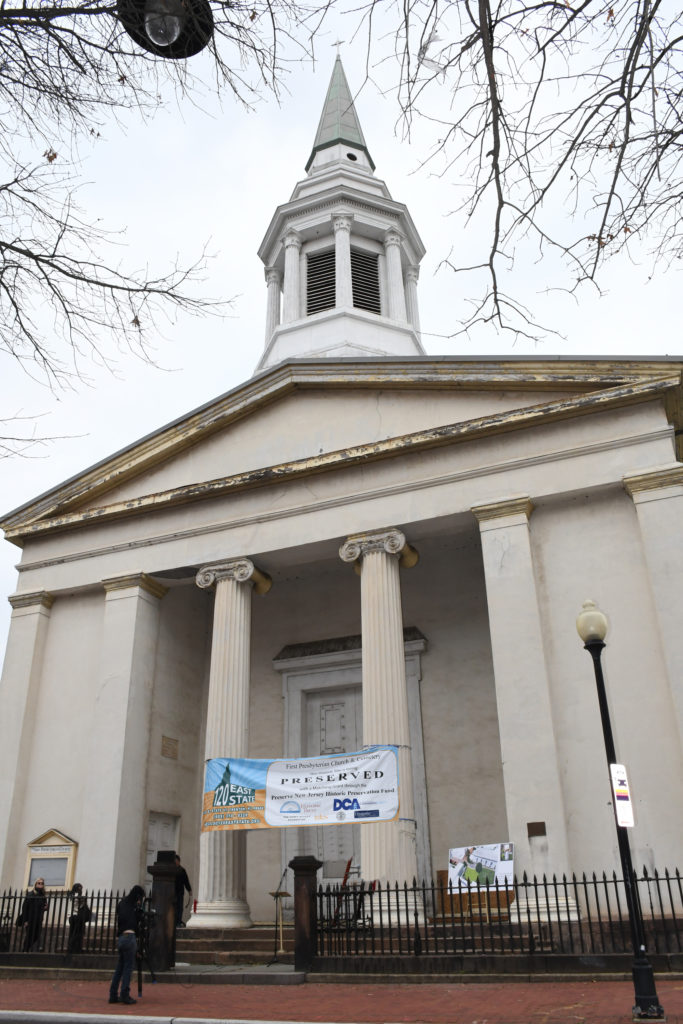
Please select any area of historical research below to learn more about the amazing stories that make Trenton the special place it is today. References are cited using in-text hyperlinks to help you explore the city’s rich history.
April 2022: 120 East State was formed to serve the purpose of transforming the First Presbyterian Church complex in the heart of Trenton into a community-centered performing arts venue, an engine of economic development, and an opportunity for local empowerment giving voice, space, and welcome to our neighbors.
July 2022: 120 East State received a $1,000,000 gift from the First Presbyterian Church to launch the Steeple Center Project.
September 2022: the organization received two matching grants totalling $825,000 from the New Jersey Historic Trust, and $5,000 from the Kearney Foundation.
September 2023: the New Jersey Historic Trust (NJHT) granted 120 East State $3,000,000 in matching capital funds.
December 2023: 120 East State celebrated the NJHT awards with our community.
January 2024: we began our “Lunch & Learn” series to build relationships with stakeholders, donors, and partners.
Since the organization’s founding, we have finalized the building’s architectural and site design, raised over $4.8 million in project funding, and developed meaningful, evolving partnerships.
To see more recent updates, check out our Insights & News page.
1712: the First Presbyterian Church of Trenton was founded
1727: the downtown Trenton site of the First Presbyterian Church was established (the current structure dates from 1839).
1776: the earliest grave-markers in the historic cemetery date back to the 1730’s. Many of Trenton’s original colonial settlers are buried here, but the cemetery is perhaps best known as the final resting place of Col. Johann Rall, killed in the First Battle of Trenton in December 1776. The first U.S. chaplain to be killed in battle, Rev. John Rosbrugh, is also buried here, killed by British and Hessian troops during the Second Battle of Trenton.
Both the church and cemetery are listed on the National Register of Historic Places.
1792: members of the church were part of a post-Revolutionary War petition to the state legislature to abolish slavery
Admittedly, since the Church’s founding, there is extensive evidence of the church’s tie to slavery. Many pastors, elders, trustees, and deacons of the church openly supported and/or participated in enslaving Africans.
1800s: many church leaders owned slaves, but there were a few documented instances of the congregation helping Black clergymen in their endeavors, including:
2020: members of First Presbyterian led conversations, marches, and demonstrations to educate the community about the Black American experience and honor victims of police brutality, like George Floyd.
According to the Trenton Historical Society, Trenton as we know it today was founded by William Trent.
1719: Trent purchased 800 acres of land from Mahlon Stacy to build a home for his family and develop a settlement around it.
1776: Trenton is known as the site of George Washington’s first American Revolutionary War victory. On December 26, 1776, George Washington led a pivotal battle called the Battle of Trenton. Prior to this battle, the Continental Army suffered several defeats, so the victory of the Battle of Trenton helped to boost morale and inspire re-enlistments 5
November and December of 1784: Trenton served as the nation’s capital.
1790: Trenton became the state’s capital.6
1800s: Trenton became known as an industrial hub for textiles, glass, rubber, plastic, metalworking, and more. The business and manufacturing culture of Trenton is what informs our city’s mantra: “Trenton makes, the world takes”.
1893: a 150-foot granite column topped with a statue of George Washington, known as the Trenton Battle Monument, was erected to commemorate the 1776 battle.
Throughout the 20th and 21st centuries, the city has changed in many ways.
Present: Trenton is home to a diverse community of people. The city is considered to be home to many renowned artists, talented athletes, community leaders, and more.
Pre-1600s: prior to European colonization, the Lenni-Lenape inhabited what is presently known as Trenton, New Jersey and other surrounding areas.2
Early 1600s: European exploration and settlements had begun in the area.
1737: the Lenape lost all claim to the land they had inhabited for centuries in the “Walking Purchase” deed of 1737. In this fraudulent transaction, the family of William Penn claimed that a 1686 treaty with the Lenape allowed the Penn family to seize ownership of lands 65 miles to the north and west of an earlier purchase agreement, which effectively added 750,000 acres to the family’s estate.
120 East State has been working with architects, engineers, and designers since 2022 to create a multi-purpose space for the community to enjoy. We are actively seeking community input on our development plans. See the News section for announcements about both in-person and Zoom forums where you can speak to us directly. Or feel free to view the introductory slides below, and send us your feedback via the web-form you’ll find by scrolling down. However you communicate with us, we want to hear from you!
To find out more about what to expect from this restoration project, see the adjacent concept presentation.
… with new partnerships under development — contact us.
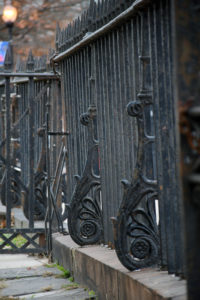
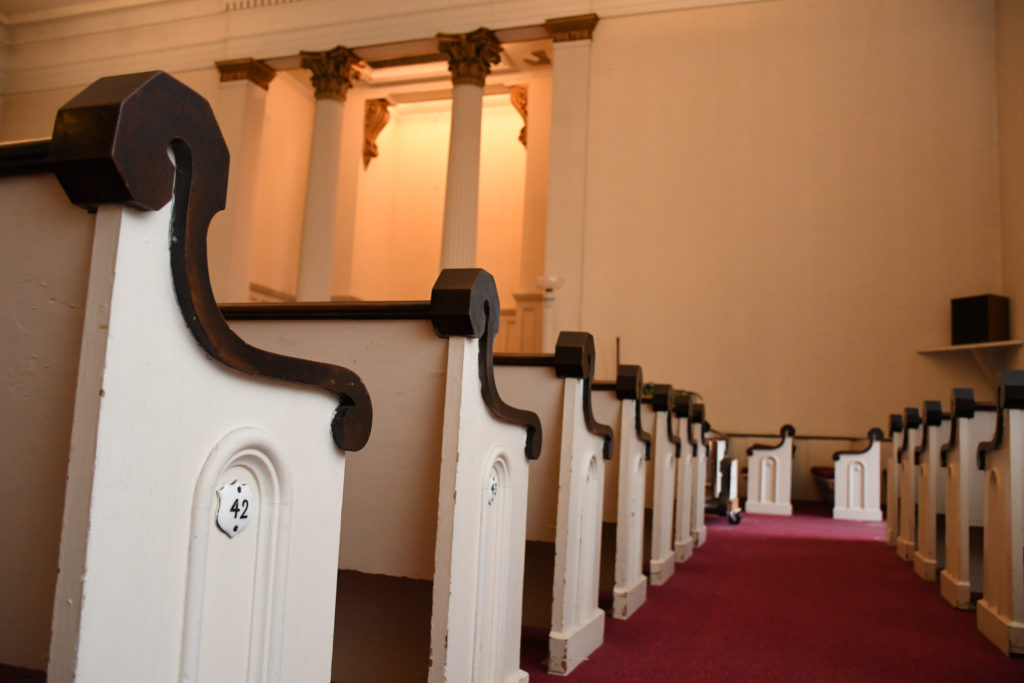

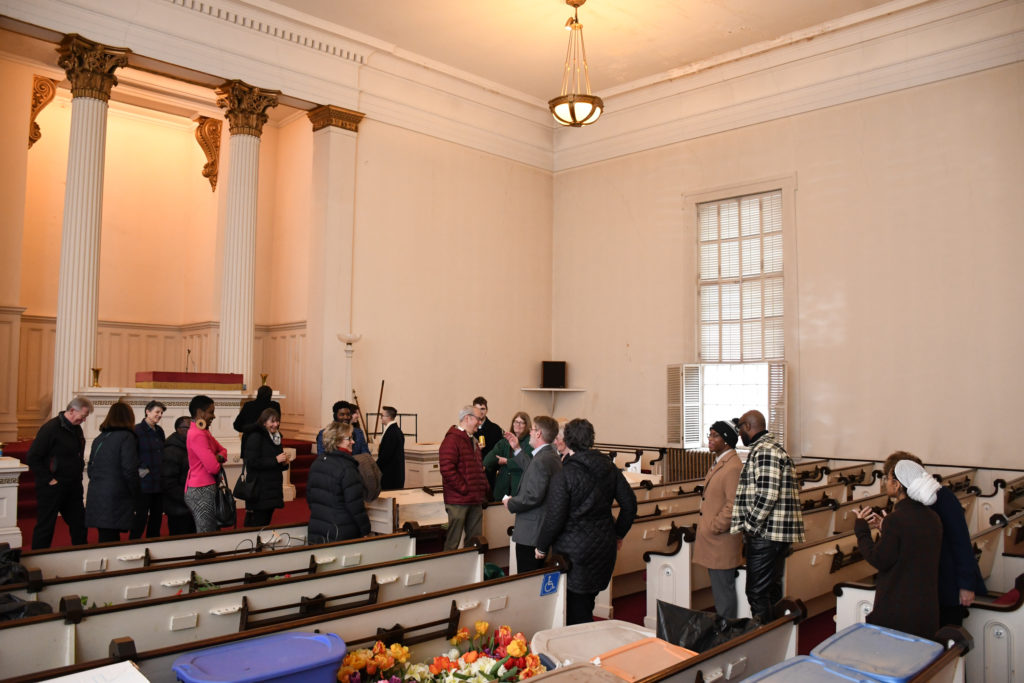


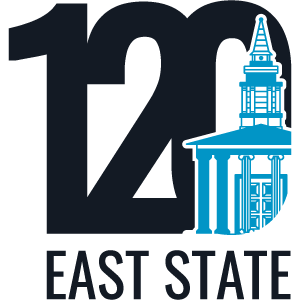
Transforming the Steeple Center
© All Rights Reserved. Crafted by The Hustle Lab.